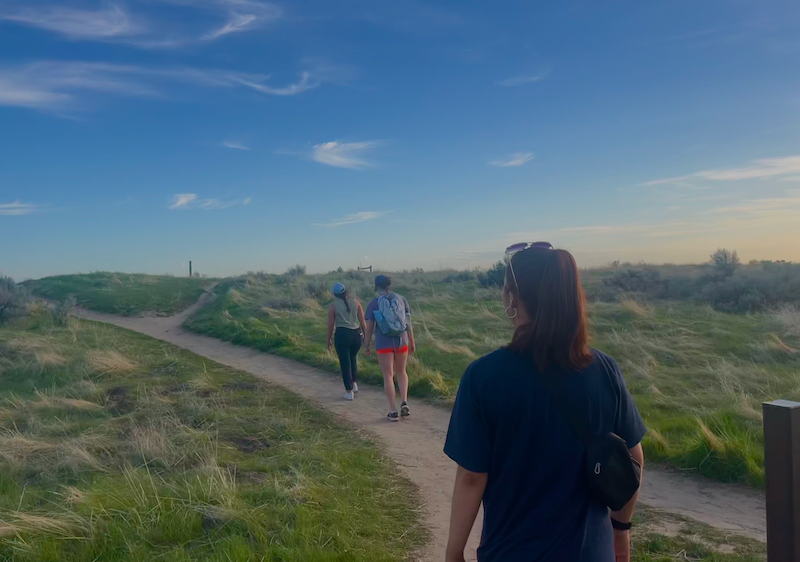
Everyone has a story of an obstacle they had to overcome to get to where they are now. My obstacle was anxiety — an emotion that many college students are all too familiar with.
This shadow followed me since I was eleven years old and for a long time, I didn’t go a day without having a panic attack. I felt like something was wrong with me and wondered if this was how the rest of my life would be. The thought of going off to college terrified me. I’d be far away from my support system with the mental monster biting at my heels.
My anxiety was provoked by sickness. I could stop my body and mind from overreacting to stressful situations to the point where I would start to shake, my heart rate would skyrocket, my throat would close and I believed I was getting sick.
Building anxiety coupled with a rocky transition into high school turned into depression. I felt alone in it — if only I realized how many people felt the same way. I processed by writing; my journal knew more about it than anyone — pen and paper wouldn’t judge me. Until that pen and paper were found and I was recommended to a therapist. I wish I had shared my mental state with the people who cared about me instead of bottling up all my thoughts and feelings and suffering in silence. I didn’t want to be a bother to people and, frankly, I didn’t want to get better because I didn’t see a way I could. But there was. I wish I had asked for help earlier. I know now that it wasn’t a sign of weakness, but one of strength.
Having someone to confide in who shared my values helped me process the mess in my brain. My therapist gave me mental tools and strategies to calm my nervous system and learn from my episodes rather than try to avoid them. She became a great friend who even kept in touch during the few years I paused sessions with her. And when I reached out to start therapy again, she welcomed me back with encouragement.
One of the most helpful mental pictures she gave me was how our neural pathways are like hiking trails. The wider, more well-worn path is the one we’re more inclined to travel down — these are our negative thoughts. The pathway of positive thinking may be narrow, and it takes more conscious effort to redirect your steps down — especially once you’re already traveling down the negative trail. When you get lost in the weeds of worrisome thoughts, you can’t take steps down the path for the day in front of you.
Entering a new environment (Boise!) with the progress I’d made and shedding some of my past was a turning point for my mental health. But later, the shadow resurfaced after I thought it was conquered. Heaviness still comes and goes with the seasons, but now I understand it better and do not let it dictate my life the way it used to.
My mom always tells me “Action alleviates anxiety”. Sitting and sulking like Eeyore under his dark rain cloud wasn’t helpful. I needed to do something about this aspect of my life if I was unhappy, not continue to live in it willingly.
Having a strong support system is crucial to fighting mental battles. Confiding in a safe person, someone in counseling services, or taking advantage of mental health resources on campus are great ways to start opening up. See what happens when you talk to a campus counselor. Check in with yourself and your friends because everyone is worth being cared for.
For me, finding things that calmed my swirling thoughts was important when things seemed out of hand. Things like walking, talking to a friend, getting outside, or reading helped me feel grounded. Sometimes I felt helpless to control how my body and brain reacted, but I could control what I did to make myself feel better. Finding a place to chill and recharge gave me somewhere peaceful to go when I was feeling overwhelmed. That place, for me, was usually a lookout spot in my hometown with an unmatched view of the lake and mountains against the backdrop of the colorful sunset. In Boise, I would hammock in Ann Morrison Park or drive to my favorite lookout spot that shall remain unnamed…
I’ve grown to see my journey with anxiety as a beautifully messy part of my life that I had to go through to be who I am today. My mental state is not my identity. It took destigmatizing mental health to arrive at a place where I saw the growth that came out of hardship. I’m beyond grateful that I’m here to share my story. I hope you take the opportunity to share yours.
Author
-

Molly
Content Writer